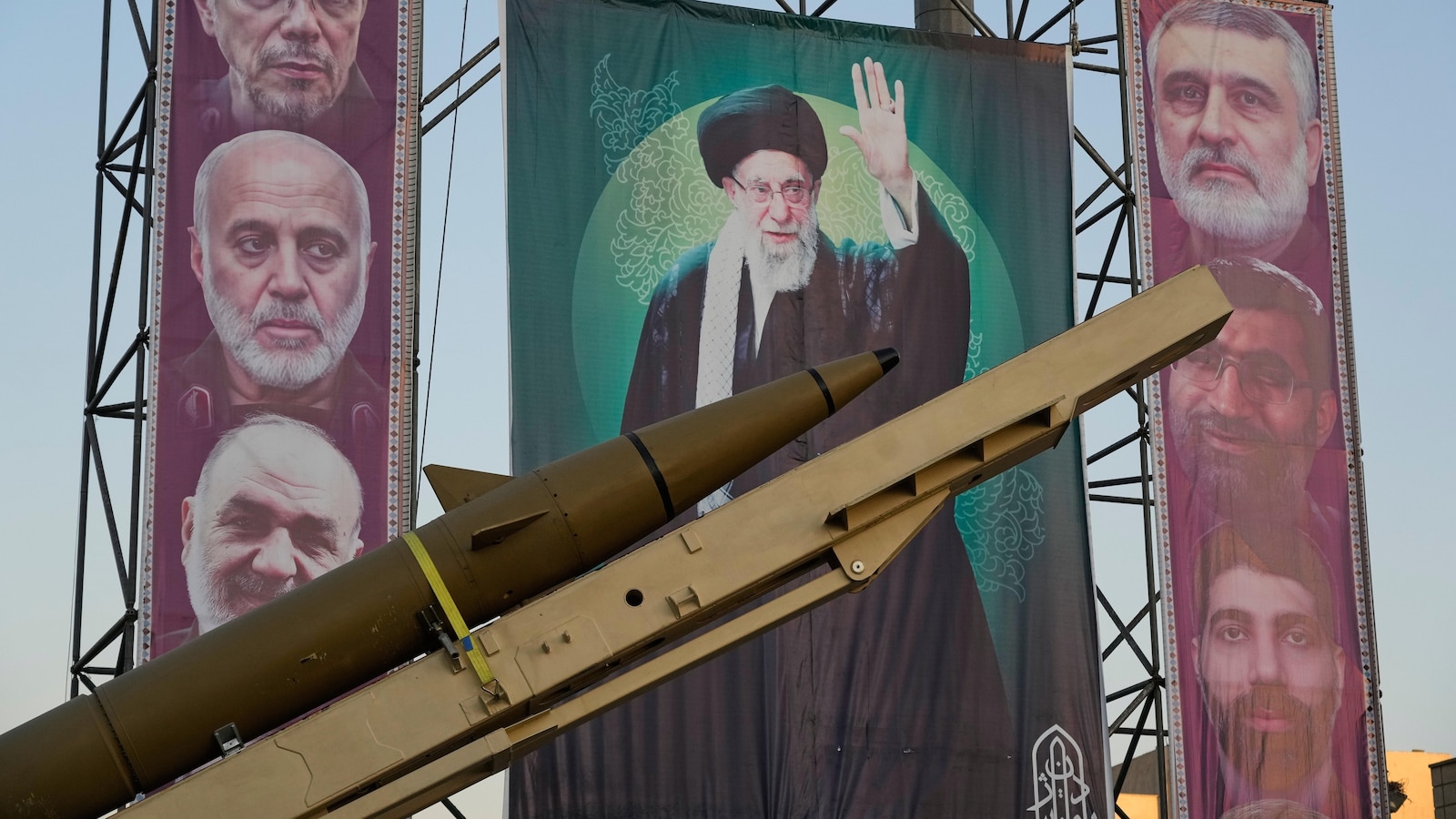DUBAI, United Arab Emirates — The United Nations reimposed sanctions on Iran early Sunday over its nuclear program, further squeezing the Islamic Republic as its people increasingly find themselves priced out of the food they need to survive and worried about their futures.
After last-minute diplomacy failed at the U.N., the sanctions took effect Sunday at 0000 GMT (8 p.m. Eastern). The measures will again freeze Iranian assets abroad, halt arms deals with Tehran, and penalize any development of Iran’s ballistic missile program, among other actions.
Iran’s rial currency sits at a record low, increasing pressure on food prices and making daily life that much more challenging. This includes staples like meat, rice, and other essentials on the Iranian dinner table.
Meanwhile, people worry about a new round of fighting between Iran and Israel, as well as potentially the United States, as missile sites struck during the 12-day war in June now appear to be under reconstruction. Activists fear a rising wave of repression within the Islamic Republic, which reportedly has executed more people this year than over the past three decades.
Sina, the father of a 12-year-old boy who spoke on condition that only his first name be used for fear of repercussions, said the country has never faced such a challenging time, even during the deprivations of the 1980s Iran-Iraq war and the decades of sanctions that followed.
“For as long as I can remember, we’ve been struggling with economic hardship, and every year it’s worse than the last,” Sina told The Associated Press. “For my generation, it’s always either too late or too early — our dreams are slipping away.”
The snapback mechanism was designed to be veto-proof at the U.N. Security Council, meaning China and Russia could not stop it alone, as they have done with other proposed actions against Tehran in the past. Russian Foreign Minister Sergey Lavrov called the sanctions “a trap for Iran” on Saturday.
France, Germany, and the United Kingdom triggered snapback over Iran 30 days ago due to Tehran’s further restrictions on monitoring its nuclear program and the deadlock in negotiations with the U.S. Iran further withdrew from International Atomic Energy Agency (IAEA) monitoring after Israel’s war on the country in June, which also saw the U.S. strike nuclear sites within the Islamic Republic.
Despite this, Iran still maintains a stockpile of uranium enriched up to 60% purity—a short, technical step away from weapons-grade levels of 90%—which is largely sufficient to make several atomic bombs should Tehran choose to pursue weaponization.
Iran has long insisted its nuclear program is peaceful, though the West and IAEA maintain that Tehran had an organized weapons program up until 2003. Tehran has also argued that the three European nations should not be allowed to implement snapback, citing in part America’s unilateral withdrawal from the accord in 2018 during the first term of President Donald Trump’s administration.
“The Trump administration appears to think it has a stronger hand post-strikes, and it can wait for Iran to come back to the table,” said Kelsey Davenport, a nuclear expert at the Washington-based Arms Control Association. “Given the knowledge Iran has, given the materials that remain in Iran, that’s a very dangerous assumption.”
Risks also remain for Iran. Davenport added, “In the short term, kicking out the IAEA increases the risk of miscalculation. The U.S. or Israel could use the lack of inspections as a pretext for further strikes.”
On Saturday, Iran recalled its ambassadors to France, Germany, and the U.K. for consultations ahead of the sanctions being reimposed, the state-run IRNA news agency reported.
U.S. Secretary of State Marco Rubio praised the three European nations for an act of decisive global leadership in imposing the sanctions on Iran. “President Trump has been clear that diplomacy is still an option; a deal remains the best outcome for the Iranian people and the world,” Rubio said in a statement. “For that to happen, Iran must accept direct talks.”
The aftermath of the June war drove up food prices in Iran, putting already expensive meat out of reach for poorer families. Iran’s government put overall annual inflation at 34.5% in June, and its Statistical Center reported that the cost of essential food items rose over 50% over the same period. But even that doesn’t fully reflect what people see at shops.
Pinto beans tripled in price over a year, while butter nearly doubled. Rice, a staple, rose more than 80% on average, hitting 100% for premium varieties. Whole chicken increased by 26%, while beer and lamb rose 9%.
“Every day I see new higher prices for cheese, milk, and butter,” said Sima Taghavi, a mother of two, at a Tehran grocery. “I cannot omit them like fruits and meat from my grocery list because my kids are too young to be deprived.”
The pressure over food and fears about the war resuming have led to more patients seeking psychologists since June, local media in Iran reported.
“The psychological pressure from the 12-day war on one hand, and runaway inflation and price hikes on the other, has left society exhausted and unmotivated,” Dr. Sima Ferdowsi, a clinical psychologist and professor at Shahid Beheshti University, told Hamshahri newspaper in an interview published in July.
“If the economic situation continues like this, it will have serious social and moral consequences,” she warned, with the newspaper noting people may do things they would never think of doing in normal circumstances to survive.
Iran has faced multiple nationwide protests in recent years, fueled by anger over the economy, demands for women’s rights, and calls for the country’s theocracy to change. The most recent wave occurred in 2022 after the death of Mahsa Amini, a young woman who died following detention by police allegedly for not wearing her hijab, or headscarf, to their satisfaction.
In response to those protests and the June war, Iran has been executing prisoners at a pace unseen since 1988, when thousands were executed at the end of the Iran-Iraq war.
The Oslo-based group Iran Human Rights and the Washington-based Abdorrahman Boroumand Center for Human Rights in Iran estimate the number of people executed in 2025 to be over 1,000, noting the number could be higher as Iran does not report on every execution.
“Political and civic space in Iran has shrunk to nothing, and outside Iran, civil society activists and dissidents face transnational repression,” the center warned.
The Iranian people, millions of whom aspire to more than a closed and brutal theocracy, have tried every option within their reach. Their leaders have not.
___
Vahdat reported from Tehran, Iran. Associated Press writer Nasser Karimi in Tehran also contributed to this report.
___
The Associated Press receives support for nuclear security coverage from the Carnegie Corporation of New York and Outrider Foundation. The AP is solely responsible for all content.
https://abcnews.go.com/International/wireStory/hungrier-poorer-anxious-iran-awaits-snapback-sanctions-nuclear-125990434



